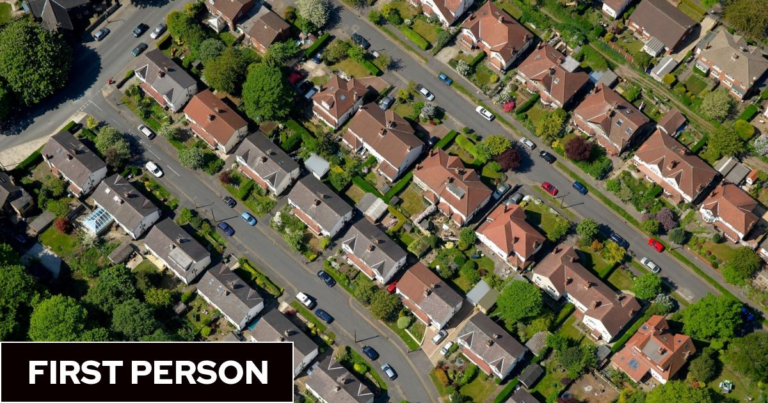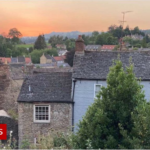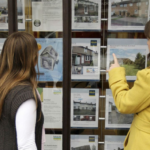I read an interesting statistic this week. Apparently more homes are expected to be sold this year than in any other year since 2007. The estate agent Hamptons, which made the claim, forecasts that 1.5 million homes will have been sold across Britain by the end of the year.
This will come as a shock to anyone who is currently house hunting – myself included – as there appears to be a severe shortage of houses for sale at the moment.
I have just had an offer accepted on a house, but it’s only the second property that’s come to the market in the past month that fits our requirements. It is in a prime location, and has been renovated recently to a high standard.
But the house is not perfect and is smaller than we’d ideally like, as well as being at the top of our budget.
The alternative is to wait for something better to come along. But who knows when that would be – and could we guarantee we’d get anything better?
My husband and I had no doubt the house would be snapped up by someone else if we did not get there first. It’s a fast market, and we made an offer less than 24 hours after viewing the house. We are chain free, and the sellers accepted swiftly.
I’m not the only one feeling the pressure in this hot market. A friend buying near Oxford tells me she saw a house she liked and put in an offer the next day.
Unfortunately she had been one of 17 viewers across the day alone, and six offers had already been received. Fearing a bidding war, she withdrew and has just had an offer accepted on her third property.
Another friend buying in Kent tells a similar story, having enquired about a four-bedroom house that had come to the market just two days before. She was told it had already sold above asking price.
How Covid has created one of toughest economic environments for young people buying a first home
Demand for properties consistently outpaces supply, due to a lack of new homes being built in Britain. But the temporary stamp duty reduction, introduced to boost confidence in the housing market during the coronavirus pandemic, seems to have distorted the market further.
Hamptons says buyers rushed to make stamp duty savings in the first half of the year, pushing up sales.
But with the tax break being wound down on 1 October, sellers now appear to be holding back, particularly if they are also looking to buy somewhere else.
Zoopla, the online property portal, says listings were down 33 per cent in August when compared to the same time in 2018 and 2019, before the pandemic.
House prices have surged 13 per cent since before the pandemic, according to mortgage lender Nationwide.
The rise has been attributed to a combination of lifestyle changes as more people work from home; buyer demand outpacing supply, and the stamp duty tax break.
But with the furlough scheme ending shortly, some are questioning whether house prices can continue to hold their value.
It’s difficult to know whether now is a sensible time to buy. However, if you plan to live in the property for a long period of time, then arguably it shouldn’t matter too much if house prices stagnate in the short term.
The key is making sure you can afford the monthly mortgage repayments. Ideally you also want to avoid going into negative equity, as this may make remortgaging more difficult.
Personally, I’m not sure house prices will fall. A chronic shortage of housing will always mean there is demand among buyers – particularly if you are buying in a popular area. Mortgage rates are also at record lows at the moment, which makes borrowing extremely cheap.
It’ll be interesting to see where the housing market will be in a year’s time. Hopefully I won’t regret buying now, and not holding out to see if the market settles. But as long as we enjoy living in the home and have no desire to move, it shouldn’t matter too much what is happening in the wider market.
All rights reserved. © 2021 Associated Newspapers Limited.






